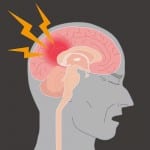Welcome back to the Medic Portal’s weekly Medical News Summary blog. This covers news from the 11th to the 17th of July and highlights the main stories relating to healthcare. Over the past seven days, we’ve seen new ways to reduce the chance of a stroke, uncertainty about medical treatment abroad following Brexit and NHS hospitals borrowing record amounts.
Tourists visiting Europe could face unexpected medical bills following Brexit

The UK’s vote to leave the European Union (EU) is expected to trigger a surge in new applications for European Health Insurance Cards (EHIC). The cards currently allow travellers discounted medical bills within the EU. Current data suggests that seven million of the EHIC cards are due to expire this year.
The cards allow patients emergency medical care at the same cost and standard as state-provided care within European Economic Area (EEA) or Switzerland. Failure to produce a card can result in expensive private medical treatment. Following the Brexit announcement it is thought that those in the UK will be more likely to renew their cards than before.
Nine in ten strokes are preventable if people follow ten key health rules

A study published from McMaster University in Canada has suggested that nine in ten strokes are preventable if people follow ten key health rules. In the UK there are 152,000 strokes every year some of which lead to lifelong disability or death.
The rules suggested to reduce chances of stroke are: lowering blood pressure, exercising, eating healthily, maintaining a healthy weight, preventing diabetes, lowering cholesterol, cutting down on alcohol, stopping smoking, lowering stress and taking medicine if required for heart arrhythmias.
It is hoped that if people follow these suggested health rules this will cut down on the number of deaths and cost to the NHS. The data suggested that the major risk factor for stroke was high blood pressure. The study determined their results through analysing 27,000 stroke victims and comparing their lifestyles with those in good health. Smoking raised the chance of stroke by 12.4% and alcohol 5.8% so advice should be given to patients with drink and smoke.
Zika virus epidemic could last another three years

New reports suggest that the Zika virus epidemic could last another three years as it is now too late to control it. Researchers at Imperial College London collected data from Latin America to determine the seasonal variations and changes in mosquito populations to estimate the progression of the Zika epidemic.
It is thought that once the current epidemic is over it could re-emerge after at least ten years as a large percentage of the population will no longer be immune. The need for researchers to develop a vaccine and other interventions has been reinforced as the progression of the virus is not slowing down. The results of the study only account for Latin America and further studies need to be done to understand the trends of the Zika virus in Asia and other areas of the world.
NHS hospitals have borrowed £2.8 billion from the government last year

In total two-thirds of hospital trusts needed to borrow money to pay for wages and bills. This is a record amount borrowed by NHS hospitals. Trusts in England were also loaned additional money to buy new equipment bringing the total amount borrowed to £3.36 billion.
The hospital that received the biggest loan was Barts Health NHS trust based in East London. There are doubts as to whether NHS trusts will be able to repay the money borrowed. The financial situation is a reflection of the current state of the NHS. NHS bosses will outline a new plan to prevent hospitals overspending and fix the financial situation.
Uploaded by Joelle on 18 July, 2016
